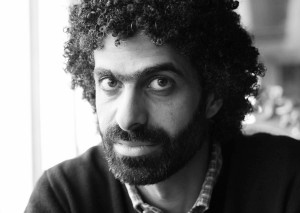 A few days ago I had conversation with my Turkish friend, a Middle East researcher, about the Egyptian revolution and how a “Turkish model” is overrated in the eyes of Egyptians.
A few days ago I had conversation with my Turkish friend, a Middle East researcher, about the Egyptian revolution and how a “Turkish model” is overrated in the eyes of Egyptians.
It is often suggested that Egypt should follow Turkey’s “successful” path. Those who argue this often base their case on selective facts and simplistic analyses. They usually refer to an imaginary model, which is stripped of its historical and international contexts. The basis of this model, the current political situation in Turkey, is not as rosy as many depict.
In these analyses, certain historical and political factors are missing. For example, the comparisons between the Turkish and Egyptian armies’ roles in politics are in most cases reductionist.
Praises for Turkey’s secular democracy seldom touch on a painful authoritarian modernisation and westernisation process. The same goes for the deep conflicts and identity traumas that have been sown into Turkish society. Also, there are hardly any references to Turkey’s EU accession process, which has been an integral part of Turkish democratisation.
Those depicting the Turkish model as the road to prosperity and democracy demonstrate a very selective approach with regards to the achievements of the Justice and Development Party government and the current political state in Turkey. From freedom of press to labour rights, certain facts and cases are disregarded. Let me place them back into the picture for those who might not pay attention to details.
Freedom of press has been deteriorating in Turkey. Since 2005 the country has lost 56 places and now ranks 154 in the World Press Freedom Index. With 76 journalists in prison, Reporters Without Borders (RSF) called Turkey “the biggest prison for journalists”.
Since the government imposed an astronomical tax fine on the country’s largest media group, the media is less critical of Prime Minister Tayyip Erdogan. They definitely got the message.
Freedom of expression has continued to be curtailed. Erdogan has filed court cases against columnists and regularly calls on the public to boycott newspapers that criticise him. According to some accounts, Erdogan has filed court cases for “insulting the prime minister” against 35 politicians, 40 columnists, 23 newspapers and comic magazines. The courts have also on a few occasions closed Blogspot and YouTube.
The number of imprisoned students in Turkey hit 2,824. Their disruptive activities ranged from sharing messages on Facebook to opening banners demanding free public education during meetings.
Nine human rights lawyers were arrested last month. Anti-terror laws of the military coup eras and their arbitrary use to intimidate the opposition and activists have remained in effect.
In the last 10 years, according to my Turkish friend, the number of women murdered has increased by 1400%. Some of these women were killed in front of the police and others pleaded with the authorities for protection without receiving any. When women activists took to the streets, they got beaten up by the police and even had miscarriages due to police brutality. Erdogan’s reaction was to question the women’s “morals”.
Turkey ranks first in Europe for occupational accidents. Four workers lose their lives every day. In the past 10 years, 12,000 workers have died. Pathetically, they are considered to be “casualties of rapid growth”. Death seems to be destined for these workers.
In a military-led attack last year 34 innocent Kurds were killed, due to an “error”. The majority of the victims were teenagers, the youngest being 12 years old. The government resisted making a public apology, putting the blame on the media and calling the incident simply “operational hazard”.
In the last 30 years, 40,000 people have been killed on both Turkish and Kurdish sides. Despite some note-worthy steps taken by the government, the Kurdish issue has continued to be at an impasse throughout Turkey’s democratisation.
Turkish secularism goes hand-in-hand with state-interpreted Sunni Islam. This establishment has denied Alevites recognition of their own place of worship. The state-run Presidency for Religious Affairs persistently refers Alevites to the Sunni mosques.
Well, even if these all accumulate into a “Turkish model”, it is a model for the status quo, rather than the revolution in Egypt. Is this good enough for Egypt?



